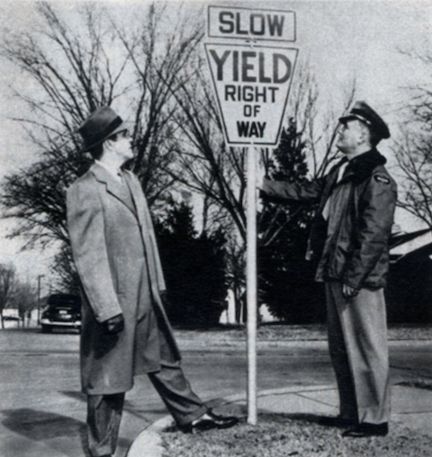Leadership Is Like A Foundation
Some leaders are like the front door of a house. They are the most visible part of an organization, and may be the main way that people become involved, but once they get inside, they find the reality to be different than the initial appearance.
Other leaders function like the roof, protecting the organization but may be "above" the real workings of the building.
Still others leaders are like an inner room, reclusive and secretive, protecting the most valuable possessions of the organization.
Each of these styles of leadership is exercised by the exertion of power and influence.

But the Bible speaks of a different kind of leader--a leadership style that offers something unique where power has been abused and systems have faltered. This style of leadership functions like the foundation of the building. Often unseen and sometimes ignored, the foundation creates the environment, sustains the workings, and ensures the success of the entire organization. "Foundation leadership" is collaborative, supportive, and strong in ways that transfer strength to everyone involved.
In Mark 9:33-35, we find Jesus confronting some of his leaders-in-training about their concern over who should be considered the "greatest" among them. Jesus tells them that to be the greatest leader, one must become a servant, not the master - the foundation, not the front door or the roof.
Of Humpback Whales and Songs of Deliverance
Humans and birds aren't the only creatures that sing. Whales sing too. In fact, the songs of humpback whales are some of the most complex arrangements in the animal kingdom. Their ditties consist of vast roars, deep bellows, and groans interspersed with interesting sighs, chirps, whistles, and squawks.Their songs range from five to 30 minutes long.
Once a whale is done singing, it will surface to take a breath, then descend to about 50 feet, where it holds its position with its head down and then repeats the song verbatim, again and again, sometimes for hours on end.

As far as we know, only the males sing, and humpbacks in the same region of the ocean sing the same song. Each year, their songs change somewhat, as though they are experimenting with different arrangements.
The song of the humpback reaches sound levels up to 180 decibels — that's louder than a rocket blasting off! And researchers believe that some of these low-frequency sounds can travel more than 3,000 miles!
Did you know that the Bible says the loud voice of an angel can reach all around the world? "Then I saw another angel flying in the midst of heaven, having the everlasting gospel to preach to those who dwell on the earth to every nation, tribe, tongue, and people - saying with a loud voice, 'Fear God and give glory to Him, for the hour of His judgment has come; and worship Him who made heaven and earth, the sea and springs of water'" (Revelation 14:6, 7).
The Three Angels of Revelation 14 represent God's church of these last days. We, as members of His church are responsible for proclaiming the Good News of the Everlasting Gospel to the entire world. Like the mighty whales, we boldly proclaim, as the psalmist calls them, "songs of deliverance" to a needy world.
Sometimes the melodies will change, as we continually reassess how best to meet the current needs of our communities and our world. But the message will always be the same ... the Good News of the Gospel of Jesus Chirst, come "to seek and to save those who are lost" (Luke 19:10, NLT).
Yielding to Avoid a Crash or a Clash
Oklahoma highway patrolman Clinton Riggs was a student at the Northwestern University Traffic Institute, now the Center for Public Safety, in 1939 when he created the yield sign as a class assignment. The original yield sign was keystone shaped and read, “Yield Right of Way” in black letters on a bright, yellow background. Yellow was used because reflective material was not yet available and it was the most visible color at night.

*photo credit unknown
Riggs’ goal was to improve public safety and determine liability in an accident. In 1950, as a member of the Tulsa Police Department, Riggs placed the first yield sign at the most dangerous intersection in the city. Within a year, the number of accidents fell to zero. By 1954, the Manual on Uniform Traffic Control Devices added the yield sign to similar right-of-way intersections. Yield signs soon appeared at intersections across the country, with the keystone shape being replaced with an upside-down triangle with black lettering and a border, but the sign remained yellow. Over time, the signs began only saying “yield.”
Yielding not only helps us be better, safer, and more cnsiderate drivers. Yielding to God, to God's Word, to the Holy Spirit, and yeilding to each other helps us become better disciples of Jesus, children of God, and brothers and sisters to each other!
Oh the crashes and clashes we could avoid if we would just yield to the wisdom and commands of the Lord, and to the needs or preferences of others!
"Trust in the LORD with all your heart and lean not on your own understanding; in all your ways submit [YIELD!] to him, and he will make your paths straight" (Proverbs 3:5-6, NIV).
"Submit [YIELD!] yourselves therefore to God. Resist the devil, and he will flee from you" (James 4:7, ESV).
“You stiff-necked people, uncircumcised in heart and ears, you always resist [fail to YIELD] the Holy Spirit. As your fathers did, so do you" (Acts 7:51, ESV).
"Submitting [YIELDING] to one another out of reverence for Christ" (Ephesians 5:21, ESV).